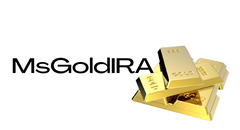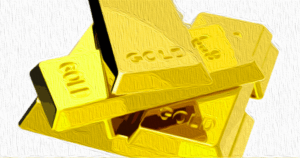
Introduction
The European Union Council and Parliament have reached a provisional agreement to enhance anti-money laundering measures for crypto asset service providers (CASPs). These new rules aim to combat fraud, organized crime, and terrorism financing by requiring CASPs to conduct due diligence on their customers and report suspicious activities.
Stricter Verification Requirements
Under the agreement, CASPs will now be obligated to verify the facts and information of users conducting transactions exceeding $1,090 or €1000. This move aligns CASPs with other obliged entities such as banks, real estate agencies, casinos, and asset management services.
Mitigating Risks
The Council of the EU emphasized that these due diligence measures aim to mitigate risks associated with transactions involving self-hosted wallets. By reporting suspicious activities and conducting thorough customer verification, CASPs can contribute to the integrity of the financial system.
Preventing Money Laundering
The Belgian Finance Minister, Vincent Van Peteghem, stated that these regulations are part of the EU's new anti-money laundering system. The goal is to prevent fraudsters, organized crime, and terrorists from legitimizing their proceeds through the financial system. The agreement strengthens the cooperation and organization of national systems against money laundering and terrorist financing.
Expanded Obligations
Under the provisional agreement, traders dealing with luxury cars, airplanes, yachts, cultural goods, and even professional football clubs will also become obliged entities. However, EU members can exclude the football sector if they perceive it to be a low-risk area.
Cash Payment Limits
The EU intends to make it harder for criminals to launder money by imposing a cash payment limit of nearly $11,000. This measure aims to restrict the value of cash payments and prevent illicit activities. Additionally, new cash payment thresholds for occasional crypto users will be introduced.
Financial Intelligence Units
The agreement also outlines the responsibilities of member states' financial intelligence units (FIU). Each unit will have immediate and direct access to financial, administrative, and law enforcement information. This includes data on crypto transfers, national motor vehicles, and customs.
Approval Process
Following the agreement between the Council and Parliament, the provisional agreement will now be presented to member states' representatives and the EU for approval. Once approved, these strengthened anti-money laundering rules will come into effect.
Conclusion
The European Union's latest anti-money laundering rules represent a significant step towards combating fraud, organized crime, and terrorism financing. By including crypto asset service providers in the list of obliged entities, the EU aims to ensure a more secure financial system. These measures underscore the EU's commitment to preventing money laundering and protecting the integrity of the financial sector.
Your Thoughts
What are your thoughts on the European Union's latest anti-money laundering rules? Share your views in the comments section below.
CFTC
investopedia.com
How To
The best place online to buy silver and gold
To buy gold, you must first understand how it works. Gold is a precious metallic similar to Platinum. Because of its resistance to corrosion and durability, it is very rare. It's hard to use, so most people prefer buying jewelry made out of it to actual bars of gold.
Two types of gold coins are available today: the legal tender type and the bullion type. Legal tender coins are designed for circulation in a country. They often have denominations like $1 or $5 or $10.
Bullion coins can only be used as investment currency. They increase in value due to inflation.
They cannot be used in currency exchanges. For example, a person who buys $100 worth or gold gets 100 grams. This gold has a $100 price. For every dollar spent, the buyer gets 1 gram of Gold.
When you are looking to purchase gold, the next thing to know is where to get it. You have a few options to choose from if you are looking to buy gold directly through a dealer. First, your local currency shop is a good place to start. You could also look into eBay or other reputable websites. You can also look into buying gold online from private sellers.
Individuals selling gold at wholesale prices and retail prices are known as private sellers. Private sellers will charge you a 10% to 15% commission for every transaction. That means you would get back less money from a private seller than from a coin shop or eBay. This is a great option for gold investing because you have more control over the item’s price.
The other option is to purchase physical gold. Although physical gold is easier to store than paper certificates you will still need to ensure it is safe. To ensure that your physical gold remains safe, you need to secure it in an impenetrable container such as a vault or safety deposit box.
A bank or pawnshop can help you buy gold. A bank can give you a loan up to the amount you intend to invest in Gold. These are small businesses that let customers borrow money against the items they bring to them. Banks typically charge higher interest rates than pawn shops.
The final option is to ask someone to buy your gold! Selling gold can also be done easily. You can contact a company like GoldMoney.com to set up an account and receive payments right away.
—————————————————————————————————————————————————————————————-
By: Terence Zimwara
Title: The European Union Strengthens Anti-Money Laundering Rules for Crypto Asset Service Providers
Sourced From: news.bitcoin.com/eu-provisional-agreement-crypto-asset-service-providers-added-to-obliged-entities-list/
Published Date: Fri, 19 Jan 2024 06:30:20 +0000















